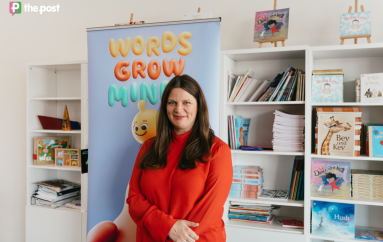Smoke and Marrow: Daniel Riley looks to the future
The latest work from Adelaide-based Australian Dance Theatre aims to help people see through the smoke and mirrors of our national discussions about race to find the core of who we are.

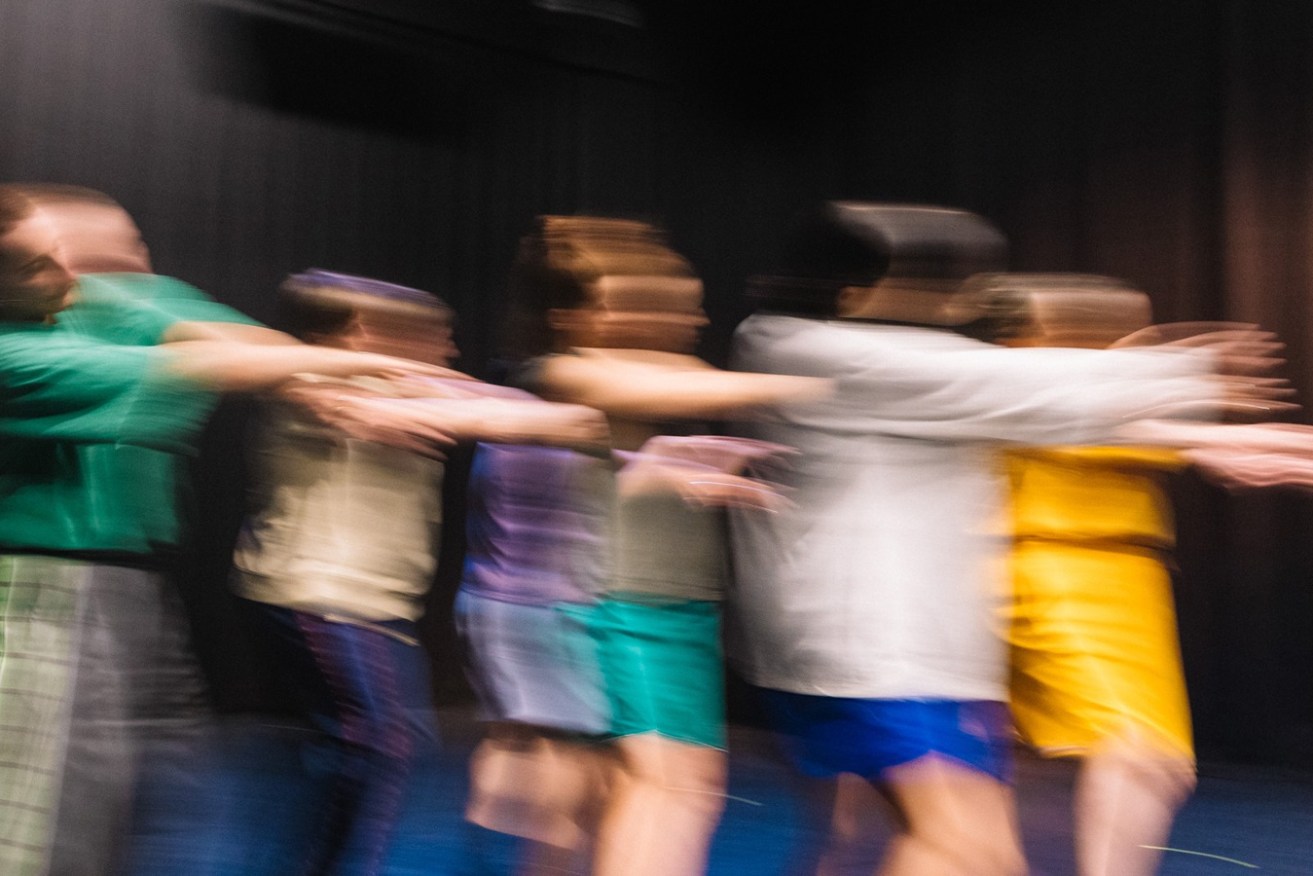
ADT dancers in rehearsal for 'Marrow' - artistic director Daniel Riley says dance is 'an instinctual language'. Photo: Thomas McCammon / supplied
Smoke has been an active presence at Australian Dance Theatre since Daniel Riley took up his artistic directorship of the company in 2022.
The Wiradjuri man is the first First Nations person to hold that role at ADT in its almost 60-year history, and among his introductory acts was a smoking ceremony at its Norwood headquarters.
“One of the first things I wanted to do was smoke out the whole building and start again,” he says.
To Riley, smoke is “cleansing and spiritual”, but its applications in his artform are broad.
Just how broad, he is attempting to find out through his new ADT work, Marrow, which premieres this month at The Odeon as part of the Adelaide Festival.
“I’m attempting to choreograph smoke, and with smoke being one of the main characters in the work,” he tells InReview.
“It’s actually looking at the texture and the feel and this ethereal nature to smoke, the way it moves in space, and what our relationship to it is.
“It’s not physical, it’s not water; it’s there, but you can’t grab it.”
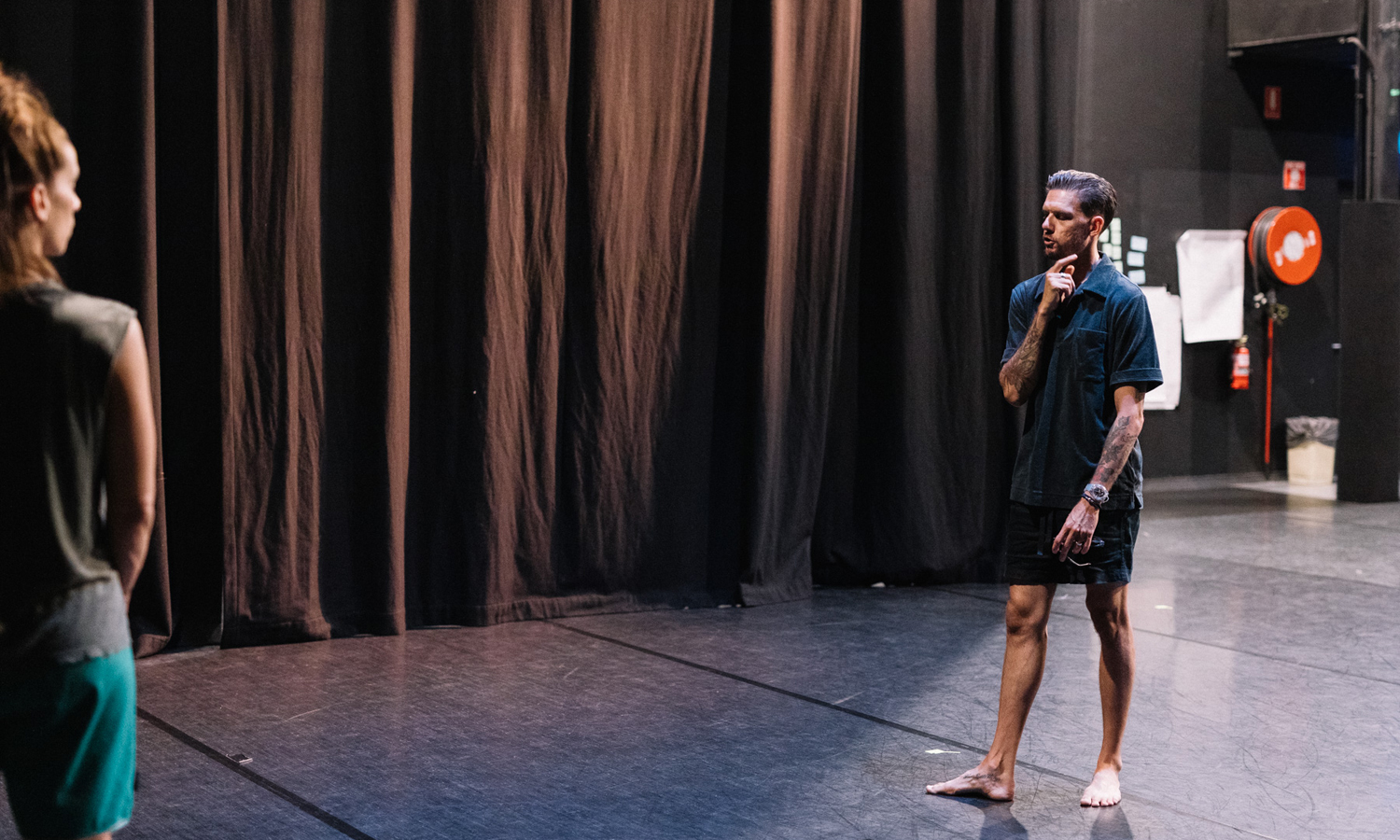
Riley believes art has the power to open difficult conversations. Photo: Thomas McCammon
Smoke comes loaded with associations, regardless of a person’s background – particularly in this time of climate catastrophe. Where there is smoke, there is fire, and, in its path, destruction.
More interesting to Riley, as a First Nations man making art in the wake of the failed Voice referendum, is its apt application as a metaphor for how Australia discusses First Nations rights.
These conversations are “smoky in nature”, he says. To discuss “concepts around truth-telling and treaties” does not make them tangible, despite campaigners for Aboriginal and Torres Strait Islander rights trying their best to make them so.
“We try and have those conversations on the national agenda, and 60 per cent of people don’t want to have the conversation,” he says, referencing the majority No vote in the Voice referendum.
Like a wisp of smoke in the open air, the conversation dissipates. Nothing changes.
“It’s all just in the ether, until it is actually enacted.”
This is the thought that led to Marrow, which, as an idea, has been a work-in-progress since Riley’s first ADT show, SAVAGE, but which has been inflected and redirected by the No vote.
Such high-concept thinking is not uncommon in his choreography. SAVAGE captured a long view of the cultural and social ramifications to First Nations people stemming from the British Government’s 1788 declaration of Australian land as “terra nullius”; while TRACKER saw him explore the life of a historical family figure – Alec Riley, who worked as a tracker for the New South Wales Police Force in the early 20th century.
Both previous works dealt with the past, and how that past informs our present. Marrow, by contrast, is about the future.
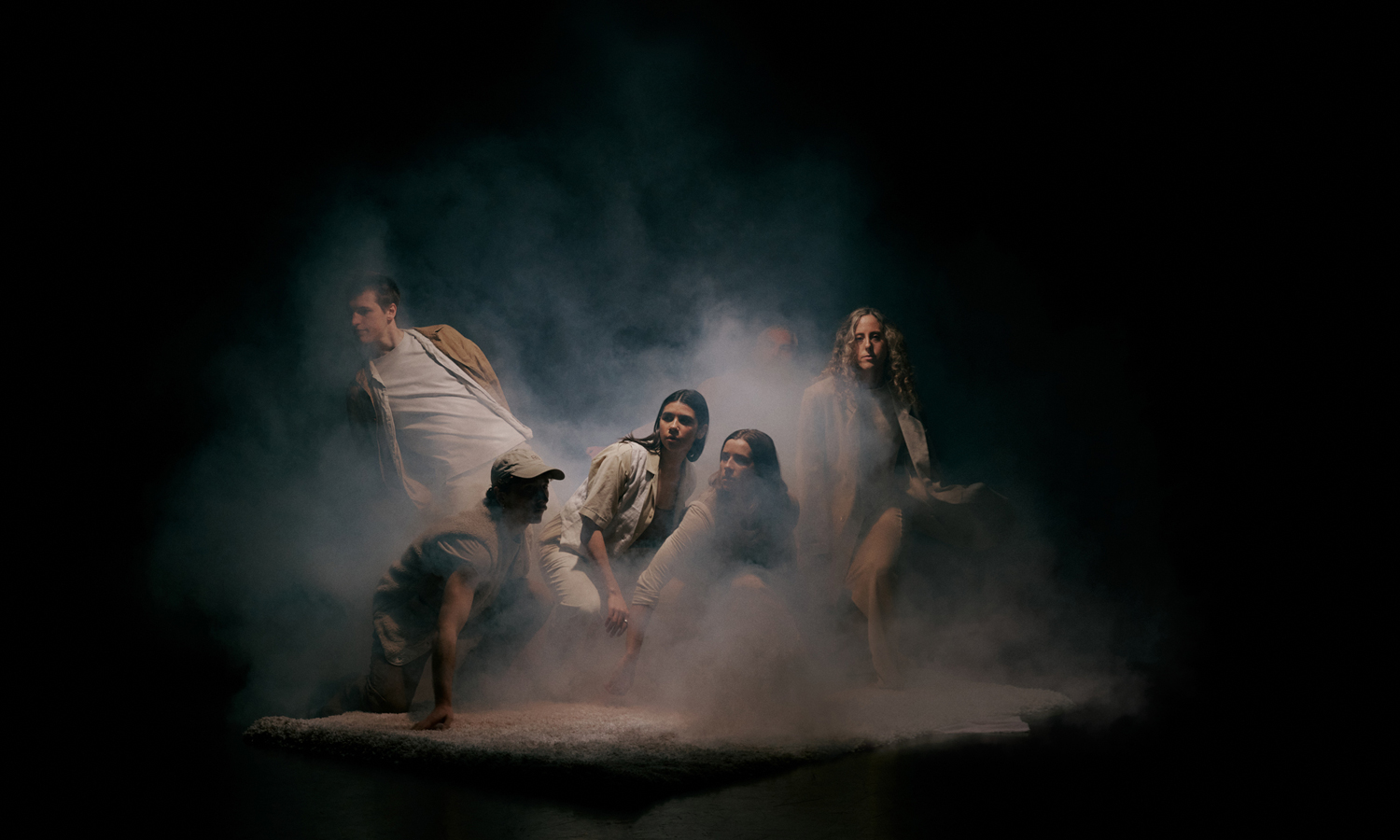
Smoke is one of the main ‘characters’ in ADT’s latest work. Photo: Jonathan VDK / supplied
Through the work, Riley hopes to show his audience a method for finding legible form in the fog, to see through the smoke. And despite the referendum result, he believes Australia is a country still interested in self-discovery and redefinition.
“I think we are still in a search for new direction. As a nation that’s 250-odd years old, I don’t think we really know who we are.
“Thinking about the conversations, it’s like, yeah, we can have a conversation about, ‘Oh, did you vote Yes? Did you vote No?’ But let’s actually get to the depths of why, and what are the implications of that?”
This would be an enquiry into the soul of the country – or, to put it biologically, a biopsy of our current condition. An excavation and examination of our marrow.
“This work is a choreographic course correction for a nation in need of a new direction,” Riley says.
“Looking at the marrow of our nation – who we are, where we’ve come from. But how do we reconcile that with our current national identity and where we want to go to?”
Such discussions aren’t possible amid the toxicity of our national politics in 2024. The Voice campaign period was proof of that.
But Riley sees it as the responsibility of himself and other leaders of cultural organisations to lead the way – to encourage discussion about how Australia might reconcile its brutal history with its friendly, happy-go-lucky self-conception.
“Art has the power to open those conversations in really soft ways. Not to jam it down people’s throats, but to have these conversations in these places of artmaking,” he says.
“It takes a while to have those conversations, and for conversations to shift. And we’re only one organisation – I can’t change a whole constitution on my own. It’s just about adding to the collective expansion and shapeshifting that we’re all wanting our nation to go on.”
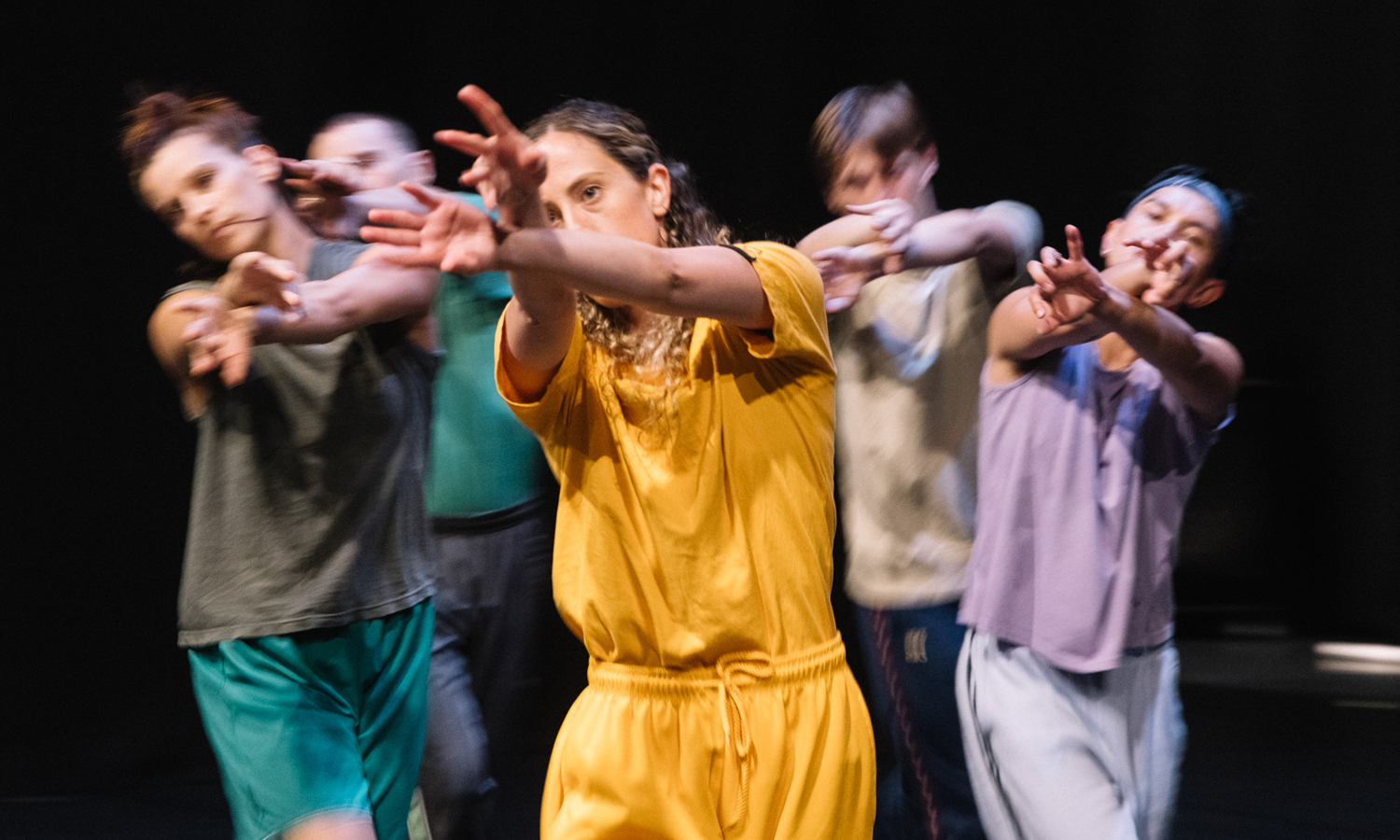
Members of the ADT ensemble in rehearsals. Photo: Thomas McCammon
Riley prefers not to be prescriptive when asked to describe his work, saying: “I feel like if I describe my work, then that’s what an audience is expecting.”
But he is certain of the power of dance to make people feel, to internalise an idea and have it filter through their body.
“Dance is an instinctual language. You can connect with it intellectually, but also, you’re connecting with it via the heart and via your instinct,” Riley says.
“And those two things are incredibly powerful, and that can really feed into the way we think, and the way we connect to each other and see each other.”
Marrow will be presented at The Odeon Theatre, Norwood, from March 13-17 as part of the 2024 Adelaide Festival.
Read more 2024 Adelaide Festival coverage here on InReview.
This article is republished from InReview under a Creative Commons licence. Read the original article.
InReview is an open access, non-profit arts and culture journalism project. Readers can support our work with a donation. Subscribe to InReview’s free weekly newsletter here.
![]()



